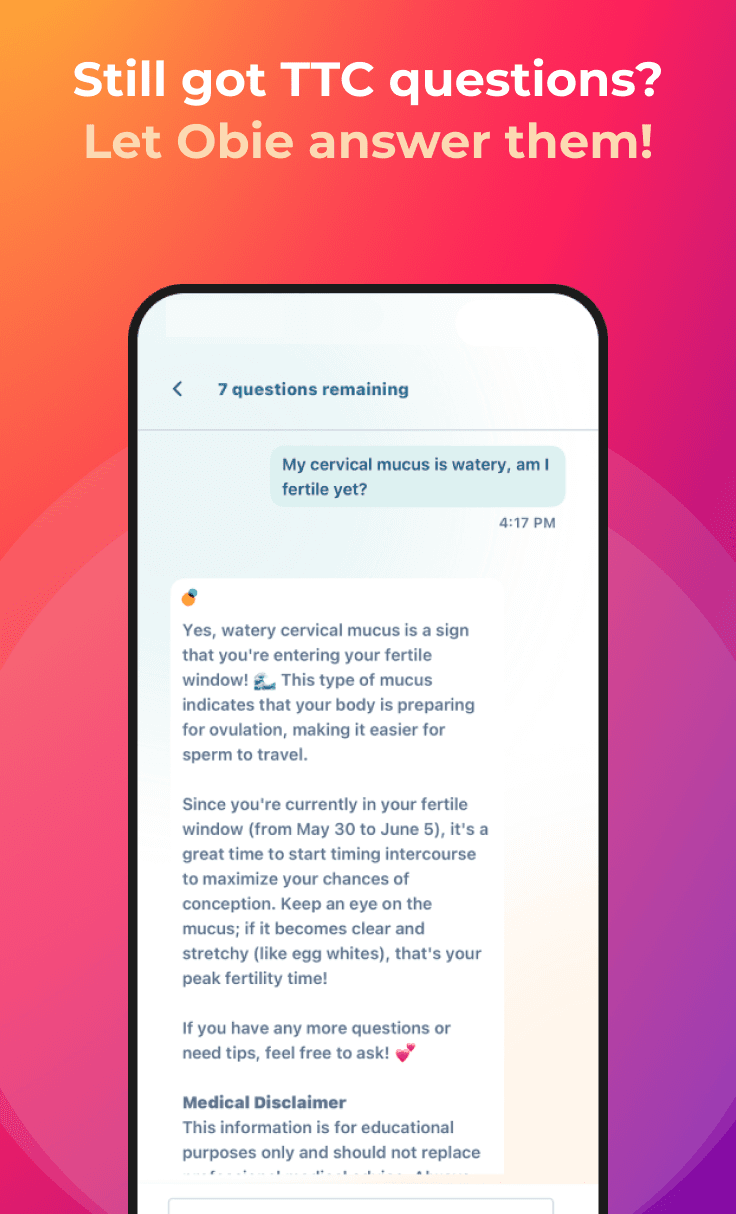Male Infertility Treatment
Infertility
Obie Editorial Team

Male infertility
Male infertility afflicts about 50% of all infertile couples. Pregnancy usually happens in about 80-85% of couples within one year of trying, and in about 15-20% of couples, it takes longer than one year of trying to get pregnant. Studies show that there is a male sperm problem in about 50% of infertile couples, and in about 1/2 of these cases the problem is found in the man alone.
Treatment for male infertility and sperm problems
It takes approximately 72-90 days to produce mature sperm. Sperm is produced 24 hours a day, 7 days a week, so any problems over the last 2-3 months could have cause sperm problems.
Before treatment for male infertility and sperm problems is considered, some tests need to be done to find out possible reasons. There are many factors that can decrease or cease sperm production.
What can cause male fertility?
- Medical or surgical illness
- Excessive caffeine
- Stress
- Excessive alcohol consumption
- Street and certain prescription drugs
- Some over the counter medications
- Injury to the testicles
- Blockage in the vas deferens
- Excessive heat to the testicles
- Vitamin deficiencies
- Hormone deficiencies
- Varicocele: a varicose enlargement of the veins of the spermatic cord that may cause infertility through a significant decrease in the quality and quantity of the sperm.
- Genetic causes (e.g. cystic fibrosis)
Here are some recommendations for trying to improve your sperm count naturally:
- Limit or eliminate caffeine intake.
- Stop smoking
- Stop recreational drugs
- Wear loose-fitting underwear (boxers)
- Stay out of hot tubs and saunas
- Quit drinking alcoholic beverages
Hormone deficiencies
If the man has a hormonal deficiency, it may be treatable with medications., however, these are rare cases.
Varicocele treatment
A varicocele is an abnormal tortuosity and dilation of veins of pampiniform plexus within the spermatic cord. If there is a varicocele, it can be surgically treated - which may help fertility in some cases. However, well-controlled studies of surgery vs. no surgery have failed to consistently demonstrate increased pregnancy rates with surgical correction. Some studies have shown better pregnancy rates after surgery, but other studies have shown lower pregnancy rates following surgery.
Clomid for men?
Many medical studies have shown no increase in pregnancy rates with clomiphene given to men. A "double blind" study (World Health Organization study, published in the International Journal of Andrology, 1992) of 190 couples, gave clomiphene or placebo ("sugar pills) to men with abnormal semen parameters. The men took either clomiphene or placebo for 6 months. Pregnancy rates were not increased with clomiphene:
- 8.1% pregnant in clomiphene group
- 11.7% pregnant in the placebo group
Intrauterine insemination (IUI)
Intrauterine insemination is an option in male infertility. Mild to moderately low sperm counts and/or motility are usually treated with inseminations for about 3-6 months while severely low counts and/or motility are more successfully treated with in-vitro fertilization and intracytoplasmic sperm injection (ICSI).
Ovarian hyperstimulation
Read More











